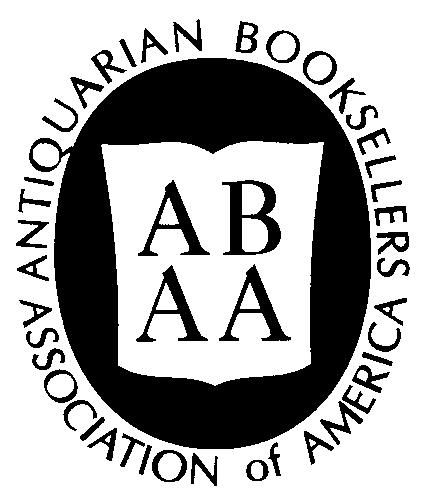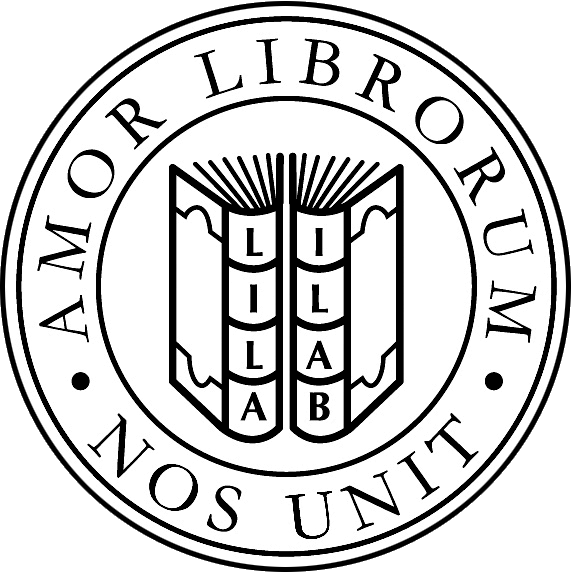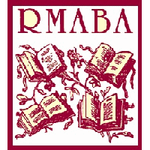Dealer in Rare and First-Edition Books: Western Americana; Mystery, Detective, and Espionage Fiction
Typed Manuscript Of A World War Ii Escape Attempt From Holland
MARINUS ZAAIJER
Other works by MARINUS ZAAIJERPublication: Privately published, 1993, Crugers, New York
First edition. 4to. Inked presentation inscription from the author and dated 12-3-93. Printed wraps. 81 (20) pgs including 3 appendix. Appendix I: Court Martial Papers (in German). Appendix II: Letters re-execution. Appendix III: Original German Text. Also included are photostate illustrations including one of the Concentration Camp Vught and a Map of the Nederland plus a Map of Dutch and English Coast Bordering the North Sea. The manuscript written after Zaaijer was released as a German prisoner of war begins with Zaaijer's attempted escape from the Netherlands and captured by the German navy. (P.13) "Among the goods which went overboard was the package with intelligence papers, the compass and the Dutch flag. When the ship came closer, we saw that it was a German navy corvette (a small destroyer). That was the type of ship normally used for the protection of convoys. The crew was standing at the railing on our side, and an officer on the bridge with a megaphone called, "Was machen Sie da?" (What are you doing here?). Our captain answered "We wanted to go to England but we have had engine trouble." "The officer on the after deck said. "You had bad luck". We knew that already. Furthermore he said, "You were stupid when you wanted to go to England because there is enough work in Germany." We considered that to be a typical German remark." (P.14) "The Germans searched us to see if we had any weapons. Some pocket knives and scissors were confiscated. Thereafter they brought us to the forward deck and told us to sit down in front of the bow cannon. This happened after there had been a difference of opinion between the officers about what they should do with us. The one who had "received" us on the after deck wanted to bring us forward. Another one who came down from the bridge, and was apparently the "party member" on board, said they should shoot us right away and throw us overboard. The captain ultimately gave the order to bring us forward. On both sides of the bow cannon a sailor was posted with a bayonet on his rifle to guard us." The manuscript continues with detailed descriptions of prison life, rations (pg. 16) "Then four successive times three slices of bread were pushed through it so fast that we barely had enough time to grab them. We were told to put the mugs on the hatch in a washbasin - they was part of the inventory- which we did. These were filled with brown liquid. The hatch was then closed. Though we did not get any butter or other spread that morning, the bread tasted great and was downed with the "tea" in a jiffy."and provisions." This was followed by being put into a detention house at the Weteringschans in Amsterdam. (pg. 17) "The cell we occupied was six feet wide and eight feet long. In the corner, to the right of the door, there was a corner cabinet, and to the left, a two piece wooden screen that kept the "ton" out of sight. Next to it stood a wooden seat to be used on the "ton". On one side of the corner closet hung a soap disk and on the other side was a nail which held pieces of paper for use with the "ton". Apart from a bed and a folding table, the furniture also included an armchair and a stool. The ceiling was arched and there was a window in the outer wall. This window was five feet high and four feet wide. There were four rows of panes in it, of which only the second from the top was transparent. The entire window was made out of iron and slanted a bit inward, which left a four inch gap at the top. That opening could be closed with a metal flap. There was also a piece of board on the wall with a set of rules for the prisoner written on it. It came down to the fact that he was not allowed to do anything and had to omit almost everything." Communication with other prisoners was done (pg. 19) "by talking with one's mouth close to the valves of the central heating system about the cell door." "With one of us listening at the door to make sure there was no one on the walkway near our cell, another one climbed on the chair and tapped the valve. After a short time someone from the cell next to ours tapped. We could indeed talk with him and asked him to call B3-15 which we did. We could even talk directly with the people in B3-15. From them we heard about the location of all our crew members." Communication from the outside world was also important. (pg.22) One evening at the beginning of September someone, who was probably standing in front of the Park Hotel on the side of the canal, called and yelled that Italy had surrendered and that Mussolini had vanished. This unknown news commentator added, "Keep your heads up, the war will soon be over." This was indeed very good news and it gave us the morale injection we needed at the beginning of our imprisonment." From Weteringschans, Zaaijer was sent to Vught Concentration Camp and given a number, which for Zaaijer was 1427. (pg 26) In the morning the SS in charge of the prisoners in our barracks counted us upon arrival at the parade ground. At that time you could also try to gain admittance to the hospital. Before the count our caps had to be removed. If that did not happen in complete synchronization it was repeated until the guard agreed it was okay. After the count he shouted. "Mutze auf" (put your cap on) and then he took his roster to the next senior SS man. The latter went with a number of lists to the center of the parade ground. With a couple of his colleagues he delivered his reports to the assistant camp commander. Before the latter went to the camp commander, however, "Mutze ab" was shouted again. If things were not going to his liking the "joke" started all over again, until he thought that all caps were taken off in unison. The camp commander stood on a podium which was adorned with a huge Nazi eagle and a swastika." From Weteringschans, Zaaijer was transferred to Utrecht, first to Gansstraat Prison and then to a detention house at Kriegswehrmachtsqefangnis, which means war army prison, where charges were brought against the author. (Pg. 40) "In short it ran this way. We had tried to inflict heavy losses upon the German empire by attempting to go to England, to assist the enemy and to provide the enemy with espionage information. Additional allegations were: usage of a boat, an outboard engine, gasoline and the fact that we had stayed in the forbidden coastal area. He advocated a double death sentence for four of us, myself included, for assisting the enemy and for espionage." (pg. 43) "early one morning the man who cleaned our door told us that the Allies had landed in Normandy that morning. He added, "The war will be over very soon now." A nervous bustle sprang up in the prison soon thereafter. All the guards received rifles! There was much running back and forth and a lot of shouting. We were not "aired" for a number of days. The news about the landings was of course, very encouraging, but I was afraid that this turn of events would harm my chance of being pardoned." "On the 21st of July there was another big commotion. This time it was because several Germans had tried to kill Hitler. There was again much shouting and running. We were disappointed, however, that the invasion forces proceeded so slowly." Next, Zaaijer was moved to the prison at Strafgefangenis Anrath. (Pg. 48) "No two hour period passed without an air raid alarm. You could hear the sirens wailing everywhere day and night. When the Allied air force attacked the Ruhr district, and that happened a couple of times a week, everything in our area shook. We did not get any news on the advance of the war over there; the guards were tight lipped. They only said that the war would be over soon. We thought we heard some rumbling far away in the west once in a while, which meant that the front must have come a lot closer. Apparently the Germans were aware of it too, because on September 4th the sound of opening and closing cell doors announced another transfer. Soon my door was jerked open and they yelled, "Sofort fertig machen fur Transport" (Prepare yourself for transfer right away). That was the end of our escape plan." (pg. 50) "We drove on and around midnight arrived at our new destination, again a prison, "Das Zuchthaus Luttringhausen", as our guards informed us. Without much ado we were brought inside and after being counted, the "Anrathers" passed us on to our new hosts. We were taken to our cells in groups." (pg. 58)"A few days later we heard the noise of an enormous artillery barrage from the north. This lasted two days. Jan, the artillery specialist in our cell, decided that it was created by at least a thousand cannons. As we later heard he was pretty accurate with his count. The guards informed us that the English had crossed the Rhine to the north of the Ruhr district, and were rapidly advancing into Germany to the east and north." "On Friday, April 13th, the SS from Wupperthal had come to the prison and had ordered the director to hand over all political prisoners who had received death sentences .... They were taken outside behind the prison by the SS and bayoneted." (pg. 60) On Sunday morning, April 15th, it was hazy in the morning hours but it turned into a beautiful day later on. ..An hour later we heard cell doors opening, then cheering and strange voices. After a moment our cell door was opened also and at its entrance stood an American sergeant in full battle gear. He said, "You are free, but I ask you to stay in your cubicle for the time being. I will leave the door open. We are here with only a couple of assault troopers and there are still bands of armed Germans around. We have to be careful, There is still a war going on. We have disarmed the prison guards and put them behind bars. We gave their arms to some Dutchmen." We thanked him exuberantly and then he went to the next sell. That was our liberation. We could hardly believe it after more than 1 1/2 years of captivity. So far, so good." "On May 5th the war finally came to an end. It was a day of rejoicing, but also of remembrance." Marinus "Rien" Zaaijer was a native of the Netherlands, born in Leiden on May 15, 1916. In May of 1940, Rien's education was interrupted by WWII when German forces invaded the Netherlands. In 1943, he and fourteen other Dutchmen, including his brother, Hans Zaaijer, attempted to cross the North Sea with the goal of joining the Allied forces in the United Kingdom. The boat engine failed while crossing which resulted in his capture. Rien was sentenced to death, but for reasons unknown, the sentence was never carried out. After spending two years in prisons in various locations in Holland and Germany, Rien and his brother were liberated in May of 1945 by the American forces. After receiving his law degree at the University of Leiden, he re-enlisted in the Dutch Army and served in Indonesia for three years until 1950. In 1961 he accepted a job transfer to New York with KLM, Royal Dutch Airlines. He died in 2017 at his home in Croton-on-Hudson, New York. OCLC list one copy found at NIOD Institute for War, Holocaust and Genocide Studies in Amsterdam, Netherlands.
Inventory Number: 44732




![St-Lo (7 July-19 July 1944). EISENHOWER, DWIGHT D. [FOREWORD BY]](/media/images/thumb/7902.jpg)








